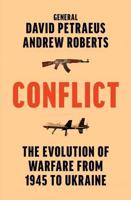Publisher's Synopsis
Intertwined Genocides explores the patterns and the internal logic of the genocides carried out by Croatian fascists - the Ustasha - against Serbs, Jews, and Roma during the Second World War. Korb argues that the Croatian fascists were not German puppets, but strong-minded and largely independent agents, despite the German and Italian occupation of their country. They tried to transform their short-lived wartime Croatian state into a mono-ethnic nation-state by force. Whilst pursuing their violent agenda, they soon lost control over much of their territory owing to the armed resistance of their victims. What followed was an escalation of multiple layers of collective violence: local genocide, the German Holocaust, the occupiers' war against partisans, and an escalating civil war, all inextricably intertwined. Because of this mix of perpetrators and their competing agendas, and because of the dynamics of violence and counter-violence, resistance and revenge, aggression and fear, Croatia became one of the most violent venues during the Second World War. Intertwined Genocides shows that South-eastern European nationalists carried out genocide independently of the Germans. Moreover, Alexander Korb brings critically important insights to the histories of violence, genocide, and its perpetrators: in a multi-ethnic society, genocide cannot be studied as an isolated phenomenon. Its dynamic escalation had dramatic effects on every ethnic group, and the victims' responses had a significant impact on the course of events throughout the Second World War, and into the latter half of the twentieth-century.









